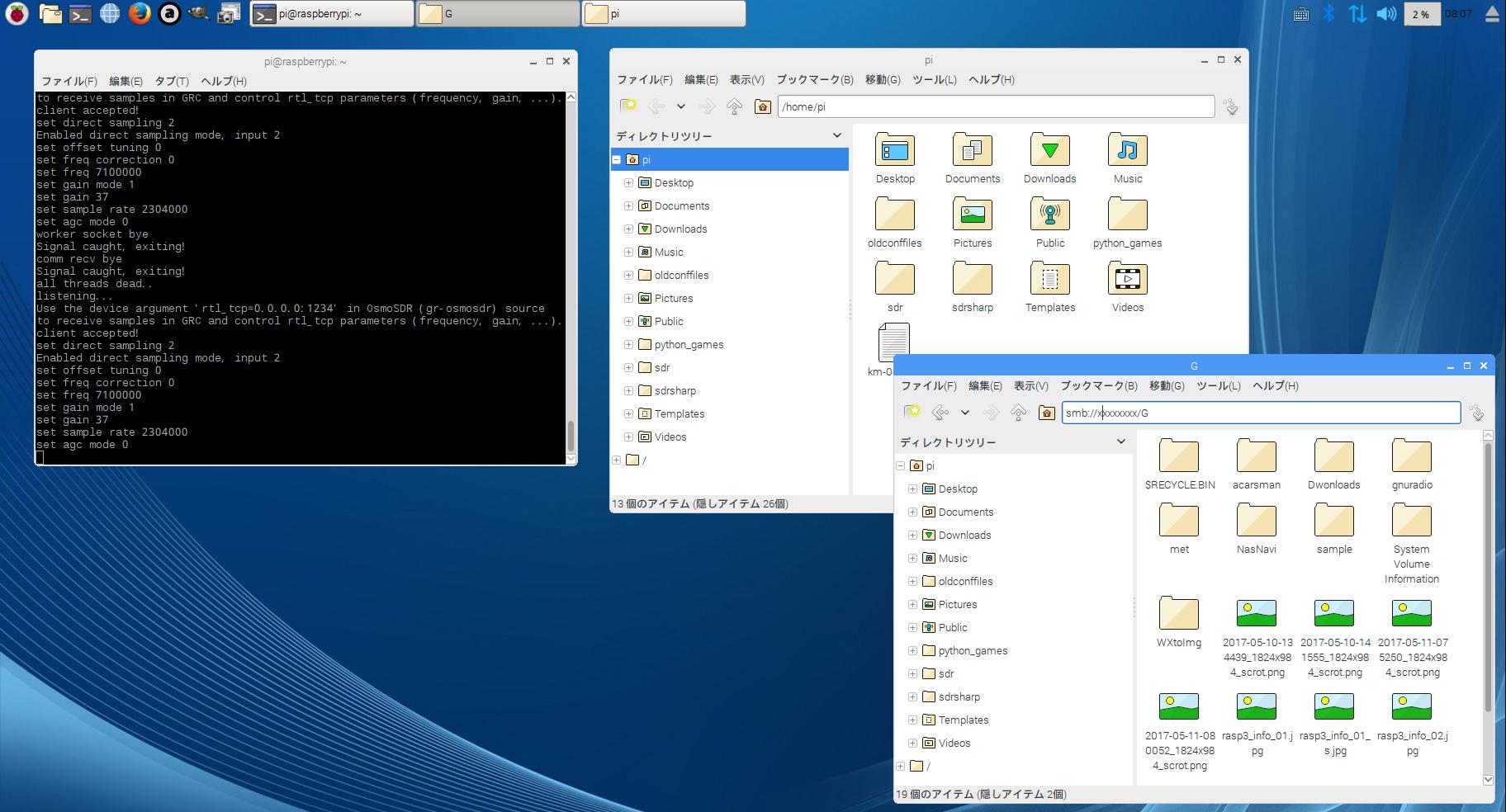
Hdsdr For Mac
Prerequisites
HDSDR on OSX the EASY way (reloaded!) 1) Download the zip archive and expand it. 2) Copy rtlsdr and HDSDR anywhere you like on your Mac. 3) Make sure your RTL2832U is connected. 4) Run rtltcp. 5) Run HDSDR OSX. 6) Click on Start.
- Move somewhere close to a waterway full of vessels transmitting AIS signals..
- Get a suitable dongle with Realtek RTL2832U chipset
- Configure Homebrew on your Mac
- Get GQRX from http://gqrx.dk/download
- Mount the DMG
- Pull
Gqrx.appinto yourApplications
Find out how off your dongle is
- Connect the dongle to a USB port of your Mac
- Start GQRX (Depending on your security settings you may need to
Ctrl-click it and select Open from the context menu to be able to run it) and configure it to use your dongle: - Tune to 161.975 MHz
- Turn on Hardware AGC on the
Input controlstab - Start DSP (
⌘+D, from theFilemenu or clicking the 'power' icon in the toolbar) - Wait until the dongle gets sufficiently warm and the internal crystal oscillates with it's normal error (Few minutes should be fine)
- If you are lucky enough, you already can identify traces of AIS radio signals (like the ones in the blue circle on screenshot above)
- Switch to the
FFT Settingstab and setRef. levelslider all the way to the right to 0 - Adjust the
dB rangeslider so that the histogram in the upper left part of the window 'sits' more or less on the bottom of it's area and the bottom part is almost all black with occasional light spots more or less in the center (These are hopefully radio bursts from the AIS transponders in range) - Adjust the zoom slider to make the AIS radio bursts more apparent. Normally the value should be something like 10 or a bit more.
- Retune to the middle of channel A bursts by dragging the centerline of the histogram display in the upper left part on the screen to the middle of the radio bursts
- Read and annotate the frequency value, which usually is a bit less than the nominal AIS channel A frequency of 161.975 MHz
- Calculate your PPM using the following formula:
1000000 * (161.975 - YOUR_VALUE) / 161.975Ex.:1000000 * (161.975-161.968)/161.975 ~= 43 - Exit GQRX
Let's catch some targets
- Open
Terminal - Install RTL-AIS using
brew install nohal/navutils/rtl-ais - Cross your fingers and try to capture some targets using RTL-AIS:
rtl_ais -p <YOUR_PPM> -n, replacing<YOUR_PPM>with the value you calculated for your very dongle in the previous step.
You should see something similar to:
Edge tuning disabled.DC filter enabled.RTL AGC disabled.Internal AIS decoder enabled.Buffer size: 163.84 mSDownsample factor: 64Low pass: 25000 HzOutput: 48000 HzFound 1 device(s):0: Realtek, RTL2838UHIDIR, SN: 00000001
Using device 0: Generic RTL2832U OEMFound Rafael Micro R820T tunerLog NMEA sentences to console ONAIS data will be sent to 127.0.0.1 port 10110Tuner gain set to automatic.Tuner error set to 43 ppm.Tuned to 162000000 Hz.Sampling at 1600000 S/s.
!AIVDM,1,1,A,406cnniv27Bb4s7FrmPvii02D06,0*62 !AIVDM,1,1,A,406cnniv27Bb4s7FrmPvii02D06,0*62
!AIVDM,1,1,A,1JLUjp8000K7El?Pka<Wa4B0000,0*7A !AIVDM,1,1,A,1JLUjp8000K7El?Pka<Wa4B0000,0*7A Download jre 1.5 for mac.
nohalombp:rtl-ais nohal$ /Applications/rtl_tcp.app/Contents/Resources/rtl_tcpFound 1 device(s):0: Realtek, RTL2838UHIDIR, SN: 00000001
Using device 0: Generic RTL2832U OEMFound Rafael Micro R820T tunerTuned to 100000000 Hz.listening..Use the device argument 'rtl_tcp=127.0.0.1:1234' in OsmoSDR (gr-osmosdr) sourceto receive samples in GRC and control rtl_tcp parameters (frequency, gain, ..).

Download & Install Software
On mac os, we'll be using the excellent CubicSDR cross-platform, open source software. For this tutorial we'll use release version 0.2.3 Head to the Downloads page to grab the latest version, or click this link to directly download 0.2.3
Once you've downloaded the installer (in this case named CubicSDR-0.2.3-Darwin.dmg), double-click it to mount the disk image, and then drag the CubicSDR.app to your Applications folder as shown here.
Now, plug your RTL-SDR dongle into a USB port on your mac, and then double-click the CubicSDR.app in your Applications folder to run it.
Apple provides hardware test CDs with most of their products, and there are some third-party utilties for Mac OS X which perform memory testing. Rember has been designed to simplify the testing, and diagnosis of these problems. Free ice ecc alternatives for mac. The user can toggle a ‘verbose’ switch to limit the amount of output, and can also choose to quit Finder and other applications.Defective memory can cause computers to malfunction, crash, and behave in a variety of ways which can sometimes baffle end users and computer technicians alike. In my experience, these tools have not always been able to quickly and efficiently diagnose memory problems.
Start the SDR Device
When you launch CubicSDR, it will pop up a window asking you to select and start your SDR device. Pick the one named Generic RTL2832U OEM :: 00000001 and then click Start.
This guide was first published on May 19, 2014. It was lastupdated on May 19, 2014.This page (CubicSDR for mac os) was last updated on Mar 07, 2020.